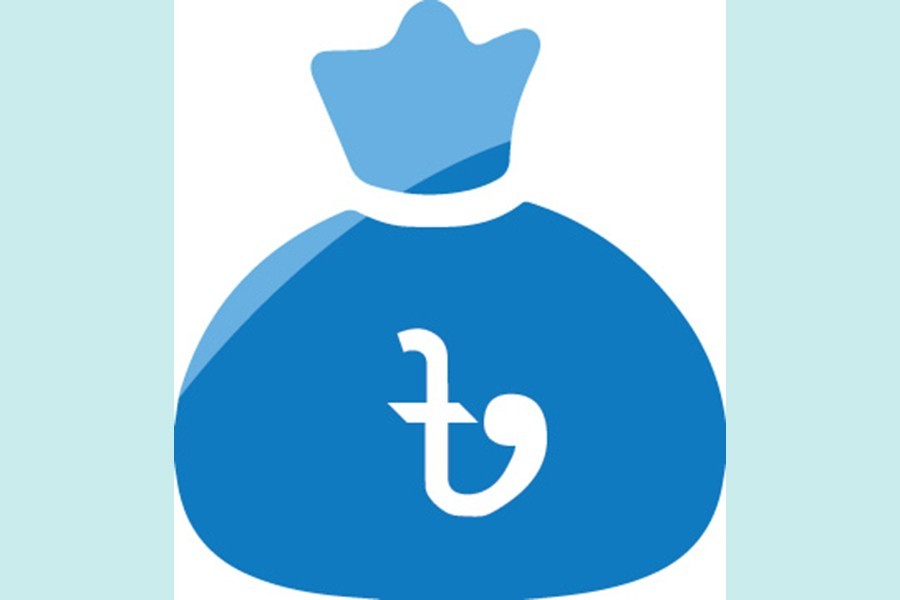Bangladesh's pharmaceutical sector has grown faster in last five years with product diversification, innovation of new-generation drugs and rising trend in medicine consumption, yielding higher revenues for the government.
Health economists, however, highlight the flip side of fast-growing medicine market as they say consumption of high-cost medicines increased for healing non-communicable diseases such as high pressure that leads to cardiovascular, stroke, kidney diseases.
The hefty growth in medicine or pharmaceutical goods consumption is reflected in government's consumption-tax collection, too.
Top twenty pharmaceutical companies paid more than double VAT worth Tk 34.83 billion to the public exchequer in the fiscal year 2021-22 against Tk 18.79 billion in FY 2017-18, according to National Board of Revenue (NBR) data.
The value-added tax (VAT) collection grew by 11.20 per cent last year from the large pharmaceuticals compared to hat of previous year.
Ailing people, on the other hand, have to pay through their nose. Currently, consumers have to pay a total of 17.4-percent VAT (inclusive) on pharmaceutical products: 15 per cent at production stage and 2.4 per cent at sales stage.
Officials claim the medicine prices remained unchanged during the last five financial years.
The Directorate General of Drug Administration (DGDA) increased prices of 53 essential drugs after seven years in July last. Before this, the prices were revised in 2015.
However, reports have it that prices of many medicines are raised somehow more often than not in marketing level.
Dr Abdur Razzaque Sarkar, health economist and a research fellow of Bangladesh Institute of Development Studies (BIDS), says footprint of new pharmaceutical products and prudent marketing strategies of the pharmaceutical industries contributed to overall growth of this sector.
"The pharmaceutical industries have changed their business pattern, focusing on NCD where medicine is costlier," he adds.
He thinks medicine consumption is higher in Bangladesh as people can buy it from their doorstep without prescription by doctors.
Dr Nazneen Ahmed, senior research fellow of BIDS, suggests the bottlenecks on smooth operation of Active Pharmaceutical Ingredients (API) parks should be removed immediately.
"The prices of medicines could be brought down if local pharmaceutical industries could produce API and laboratory reagents," she says.
The country needs to get prepared to push for extension of TRIPS (Trade Related Aspects of Intellectual Property Rights) waiver after the country will have graduated from least-developed country (LDC) status in 2026 to enjoy the patent benefit, she adds.
Of the top VAT-paying companies, Square Pharmaceuticals is in the first position by paying Tk 5.83 billion last year. The payment by the company grew by 14.44 per cent last year over the corresponding year, data of large taxpayers unit (LTU) under VAT wing revealed.
Incepta Pharmaceuticals Company Limited is in the second position with Tk 4.67 billion paid in VAT, up by 19.91 per cent year on year.
Renata Limited paid Tk 3.28 billion to sand next. VAT payment by the company grew by 7.09 per cent last year.
Healthcare Pharmaceuticals Limited paid Tk 3.35 billion to the public exchequer. The pharmaceutical company's VAT payment grew by 34.80 per cent in FY 22, over the corresponding period last year, highest among all drug-makers.
The ACME Laboratories Ltd owners paid Tk 2.81 billion worth of VAT--up by 11.35 per cent over the corresponding period.
VAT payment by ACI Limited grew by 10.18 per cent last year. The company paid Tk 2.02 billion.
Aristopharma Limited paid Tk 1.72 billion and Drug International Tk 1.07 billion.
Eskayef Bangladesh Ltd paid 15.92-percent higher VAT worth Tk 2.45 billion to the public exchequer last year.
Pharmaceutical industry-insiders say the COVID-19 pandemic has created necessity of manufacturing some new products, including masks, PPE and other safety gears.
Executive Director of Square Pharmaceuticals Limited (Chemical Division) Md Mizanur Rahman found average growth of pharmaceutical industry impressive as is reflected in the payment of consumption tax.
He said along with new products launched every year, existing products also marked significant growth.
Kaiser Kabir, Managing Director and Chief Executive Officer of Renata Limited, said better sales, marketing and quality of products contributed to the higher sales of pharmaceutical products of the company.
Industry-insiders say investment in biotech-medicine-production plant is necessary now to reduce import dependence on vaccine, insulin, anti-cancer and other lifesaving medicines.
Worldwide, 80-percent investment in pharmaceutical sector is in biotech- medicine plants while Bangladesh has only few.
"We have to think on investment in biotech plant to build an import-substitute industry after 10 years," one said, preferring anonymity.
Responding to the issue, Mr Kaiser Kabir points out that the country has no regulations for biotech-medicine production. "Some industries are producing biotech medicine as per their whim, which is not expectable."
Mohammad Shafiqul Islam, senior general manager (marketing) of Popular Pharmaceuticals Limited, said the company launched 52 new products last year.
He said the company has established itself as one of the pioneers in hormone injection, saline and production of other import-substitute medicines in its last 16 years' operation in Bangladesh.
Currently, there are 200 registered pharmaceutical companies in Bangladesh, according to Bangladesh Association of Pharmaceutical Industries (BAPI).
Market size was Tk 1.73 billion in 1981 that jumped to Tk 16.99 billion in 2000, according to IQVIA, formerly known as MIS health.
However, the pharmaceutical industry registered a quantum leap from 2010 to 2021. In 2010, market size was Tk 68.0 billion that shot up to 231.84 billion in 2019, Tk 262.85 billion in 2020.
In 2021, the pharmaceutical sector faced negative growth due to the Covid pandemic, causing a nominal slide of market size to Tk 261.63 billion.


